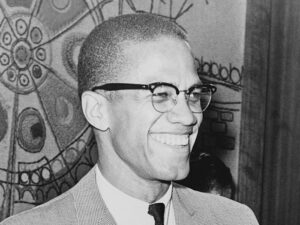Black Belonging and Antiblackness
This series of articles pulls from my MA research study which addresses the question of Black belonging in US full-time Islamic schools—Black majority Black led (BMBL) schools and immigrant majority immigrant led (IMIL) schools—and what role antiblackness plays in feeling a sense of belonging in these educational spaces. During my research, I analyzed a survey alumni completed, conducted a focus group with alumni, and interviewed alumni and administrators to understand Black students’ sense of belonging and the dynamics such students encountered. I begin this article with an anecdote from Salma, a Somali American entering tenth grade (her real name has been redacted):
The students would use the term ‘abid sometimes referring to me, but they would say it was a joke and they were laughing about it. As they got more comfortable with me, they started using the term khara (which means excrement). And it was all under the guise of “it’s just a joke.” “Hey, Khara, how are you, Khara?” They never referred to each other as khara when they were joking with each other. Arabic isn’t my language, so I didn’t know what it meant initially. And when I found out what it meant I was like, ‘I don’t want to be called that, don’t call me that.’ And they’re like, ‘oh, we’re just joking with you. Do you not want us to joke with you?’ So, it was like gaslighting, manipulation, so much was going on . . .
Salma’s mother was hesitant to send Salma to this Islamic school because she had heard that it was not welcoming to Black students. However, Salma insisted on enrolling in Islamic school. Salma shared the following:
I wanted to feel a sense of belonging. There were all these other Muslim girls who wore a hijab (headscarf), were talking about Allah and it felt like a beautiful thing. Also, one of the teachers I highly respected was teaching our classes. So that was another reason why I decided to go. I did not expect what happened to me would happen. I was traumatized for a few years afterwards.
In contemporary Muslim spaces across diverse locales, ‘abid means slave and is a derogatory term used to refer to Black individuals. Historically, in Muslim-majority cultures, the word ‘abid is synonymous with Blackness. Though my research for the purposes of this thesis does not extend to the prevalence of this word in the Muslim world as a whole, my current study suggests it is definitely part of Muslim America’s lexicon, and by extension, in the collective consciousness of non-Black Muslims.
My background research on the topic of Black belonging in US Islamic schools presents the following question: is being Black co-terminus with enslaved in non-Black Muslim spaces? Frank Wilderson III (2020) posits that “‘Blackness cannot exist as other than Slaveness’” (229). The ease with which some in the non-Black Muslim community use the term ‘abid and the general[1] quietism of Muslim leadership around this term suggests that Muslims may subconsciously subscribe to the same worldview. America, being a “melting pot,” is a space that seemingly brings together cultures from around the world. Muslims who have come to the US—and may equate the concept of Black with enslavement—have thus collectively transmitted this worldview to generations born and raised in the US, since at least the late nineteenth century.
Imam and Khan’s “Students’ Sense of Belonging at Full-Time Islamic Schools in the United States” (2021) saw a pattern of racism as a factor that impacted belonging amongst African American Muslim students. In his paper, “Against the Dark,” Michael Dumas argues for the theorization of antiblackness in education as a more accurate tool than racism in studying educational spaces (2016). He posits that we “must grapple with cultural disregard for and disgust with Blackness.” He sees the actual disregard of Blackness as something that we directly have to face, that can be avoided when we use the language of race. He contends that ‘“deeply embedded within racialized policy discourses is not merely a concern about disproportionality or inequality, but also a concern with the bodies of Black people, the signification of (their) Blackness, and the threat posed by the Black to the educational well-being of other students.” He sees this approach as helping policymakers understand the terrain and contend with the presuppositions that inform behavior in educational spaces.
Thus, the focus of this study is on antiblackness, and the subjects are Black Muslim alumni of full-time U.S. Islamic Schools.
To contextualize this study we will explore how Muslim societies have regarded Blackness. What is racialized slavery and has this ever existed in the Muslim world? And how the use of derogatory terms like‘abid is not sanctioned in the Qur’an. The quote below illustrates the terms used in the Qur’an. Certain terms are used when referring to enslaved persons and the text is explicit about the non-usage of the term ‘abid for enslaved person.
The Qur’an generally uses the following terms: fata (pl. fatayat), literally meaning “boy”; fatat (pl. fatayat), literally meaning “girl”; raqaba (pl. riqab), meaning “neck”; and the expression ma malakat aymanukum, meaning “that which your or their right hands possess.” These terms have been understood to designate slaves as personal property. The Qur’an deliberately avoids[2] calling an enslaved person by the name ‘abd (pl. ‘abid) and for the feminine gender ama (pl. ima’), literally meaning “slave,” because the words ‘abd and ama in the Qur’an are reserved for all God’s creatures—his servants and worshippers, obeying Him only.
(El-Hamel 2012, p. 21)
El-Hamel shows in this passage and through his book Black Morocco that the Qur’an does not sanction the word ‘abid for enslaved people. The Qur’an instead uses the word ‘abid to refer to humans, as we belong to the Creator, so technically we are all slaves of the Creator. Islam, being a code for life, regulates the slavery that already exists in areas that came under the jurisdiction of Islam. Thus, not only is it incorrect to use this term for legally enslaved people; it is also wrong to use it as a blanket term for Black people.
For a large part of Islamic history, slavery was not racialized; however, despite not being sanctioned by Islam, racialized slavery did exist in some parts and time periods of the Muslim world. This is how ‘abid became synonymous with Black in some colloquial Arabic. There are people who insist on using this term ‘abid and believe it is “innocuous” because it “just means slave”. However, they should consider why they do not use it as a synonym for Muslims in general, which would technically be a more accurate usage than its current usage in the Arab world and the diaspora, including the US.
El-Hamel stumbled into the world of Black slavery when a “white[3]” Mauritanian woman encouraged him to “buy a slave” when he was in the capital city of Nouakchott in 1994. Understandably, he was in shock. Just as I was, a few years later in 2001, when the Mauritanians of Umm ul Qura (a village outside the capital city) could not figure out which of the British students of knowledge I, as a Black woman, belonged to!
One of the questions asked in my survey was “Did you ever hear a student use a derogatory statement about Blackness such as the n-word, ‘abid, or any other derogatory term?” Of the respondents, 43 of 64 said yes. This is 67% of my sample. For those who specified which word, a third reported slave/’abid, and a third reported the n-word.
[1] There are a few Muslim leaders who speak out about this socio-spiritual ailment.
[2] The two exceptions are 24:32 and 2:221.
[3] Mauritania is a multi-ethnic nation consisting of Wolof, Fulani, Mende, Arab, Berber etc. The speaker here is a woman of Arab descent and the term they ascribe to themselves is Bayda, which is translated as white.
In part two of the series, we will look at “The Qur’anic Imperative of Honoring Humanity”, how the Qur’an gives us our foundational principles for moving through the world, and how God grants all of humanity an honored status.
Rukayat Yakub is the author of the 2023 Black Belonging Study and serves as an instructor at Ribaat Academic Institute. She received her teaching certification in Montessori elementary education and earned her Master of Arts in Islamic Education. She is working on a Doctorate in Ministry to further her studies in belonging and community development.
An award-winning children’s author, educator, publisher, trainer, consultant, and school culture coach, Rukayat has worked in education for 25 years. Her expertise includes Heartwork (addressing anti-blackness to build spaces of prophetic belonging), integrated curriculum design, History, and ethical wealth flow. She works with leaders to develop and implement best practices that infuse prophetic courage, kindness, and humility in community institutions. Her websites are rukayatyakub.com and www.lightlegacybooks.com
She can be reached at rukayaty@gmail.com





